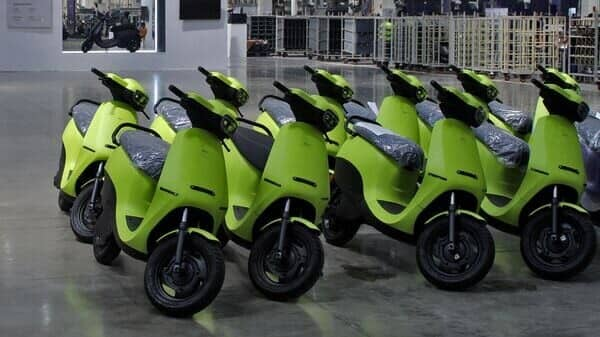
Ola Electric expanding from 800 to 4,000 stores by year-end
What's the story
Ola Electric has announced an ambitious plan to expand its retail network from the current 800 stores to a staggering 4,000 by December 20. That's a five-fold increase in just three weeks.
The company's initial target was to reach 2,000 stores by March next year. However, it has now decided to "double down on the rollout plan" to accelerate EV adoption across India's vast rural markets.
Market dynamics
Expansion amid market share fluctuations
The announcement of this rapid expansion comes at a time when Ola Electric's market share has witnessed some major ups and downs.
Despite being the two-wheeler EV leader, its share fell from 52% in April to 28.6% in September, then slightly improved to 31% in October on account of festival discounts.
However, it further fell to 25% as of November.
Store features
Ola Electric's new stores to feature service facilities
Ola Electric has confirmed that all its new stores will be equipped with service facilities.
This move comes as part of the company's strategy to establish a wide direct-to-consumer (D2C) network and touchpoints under its Network Partner Program.
The idea is to extend its reach beyond tier-1 and tier-2 cities, covering every pin code in India.
Twitter Post
All stores opening together on December 20
Taking the Electric revolution to the next level this month.
— Bhavish Aggarwal (@bhash) December 2, 2024
Going from 800 stores right now to 4000 stores this month itself. Goal to be as close to our customers as possible.
All stores opening together on 20th Dec across India. Probably the biggest single day store opening…
Stock performance
Shares recover after expansion announcement
Ola Electric's shares, which opened today's trading session with a 7% fall, made a strong comeback to trade at ₹93.70 apiece.
The recovery came on the back of CEO Bhavish Aggarwal's announcement of the company's major store expansion plan.
Although it sold only 29,191 units in November (3% YoY decline and 30% MoM drop), analysts attribute the decline to rising competition from Bajaj Auto and TVS Motor Company.